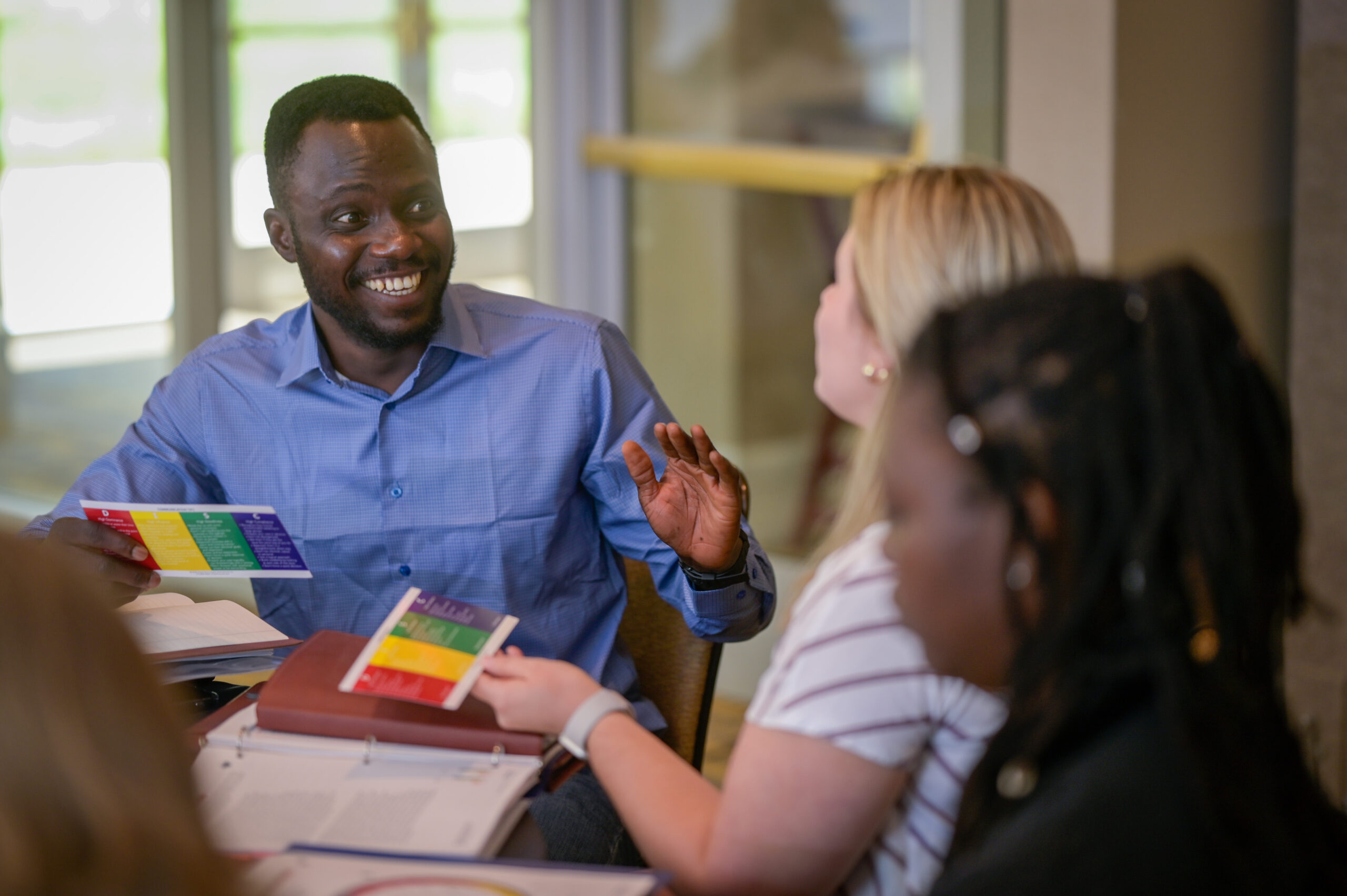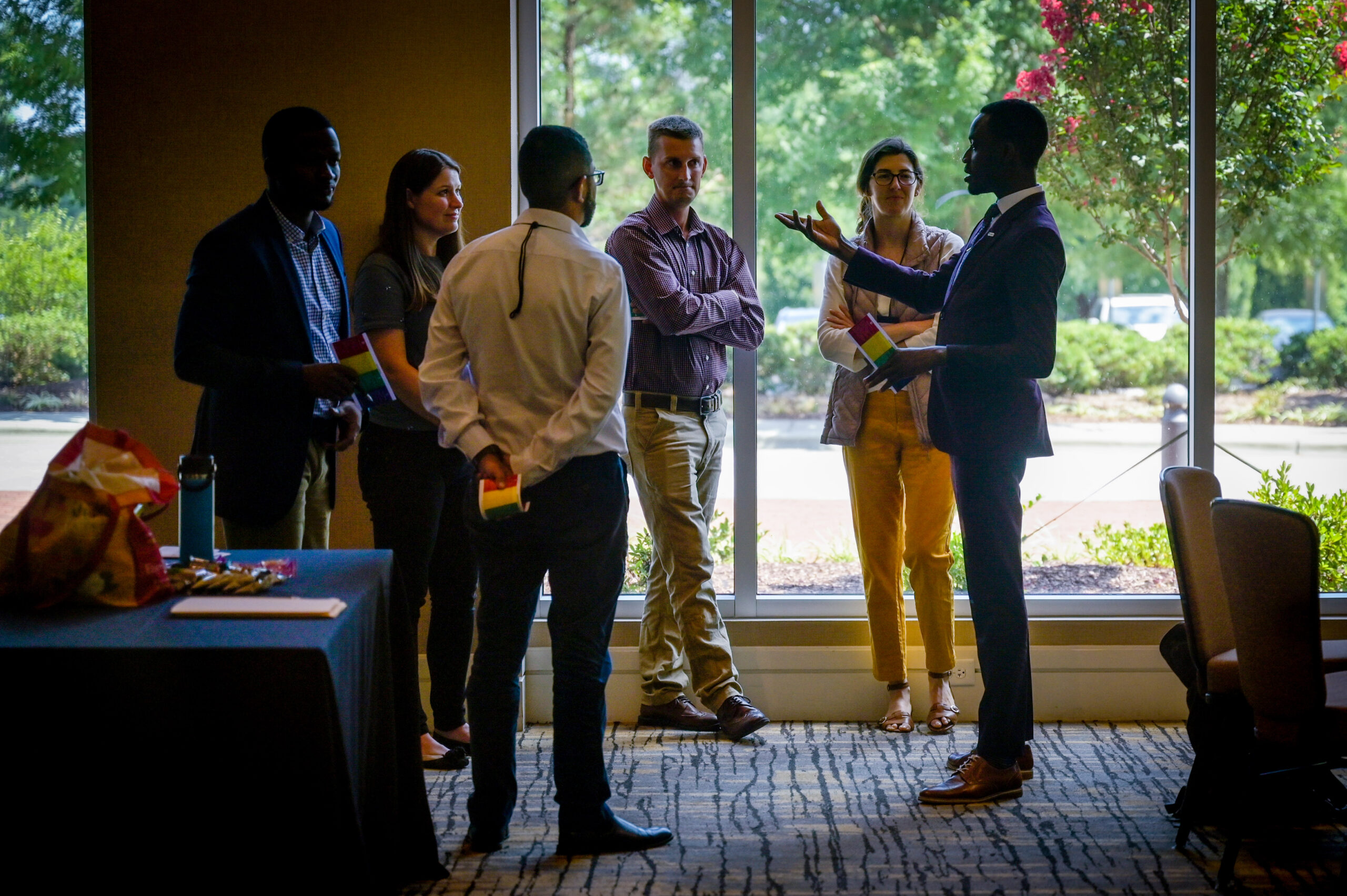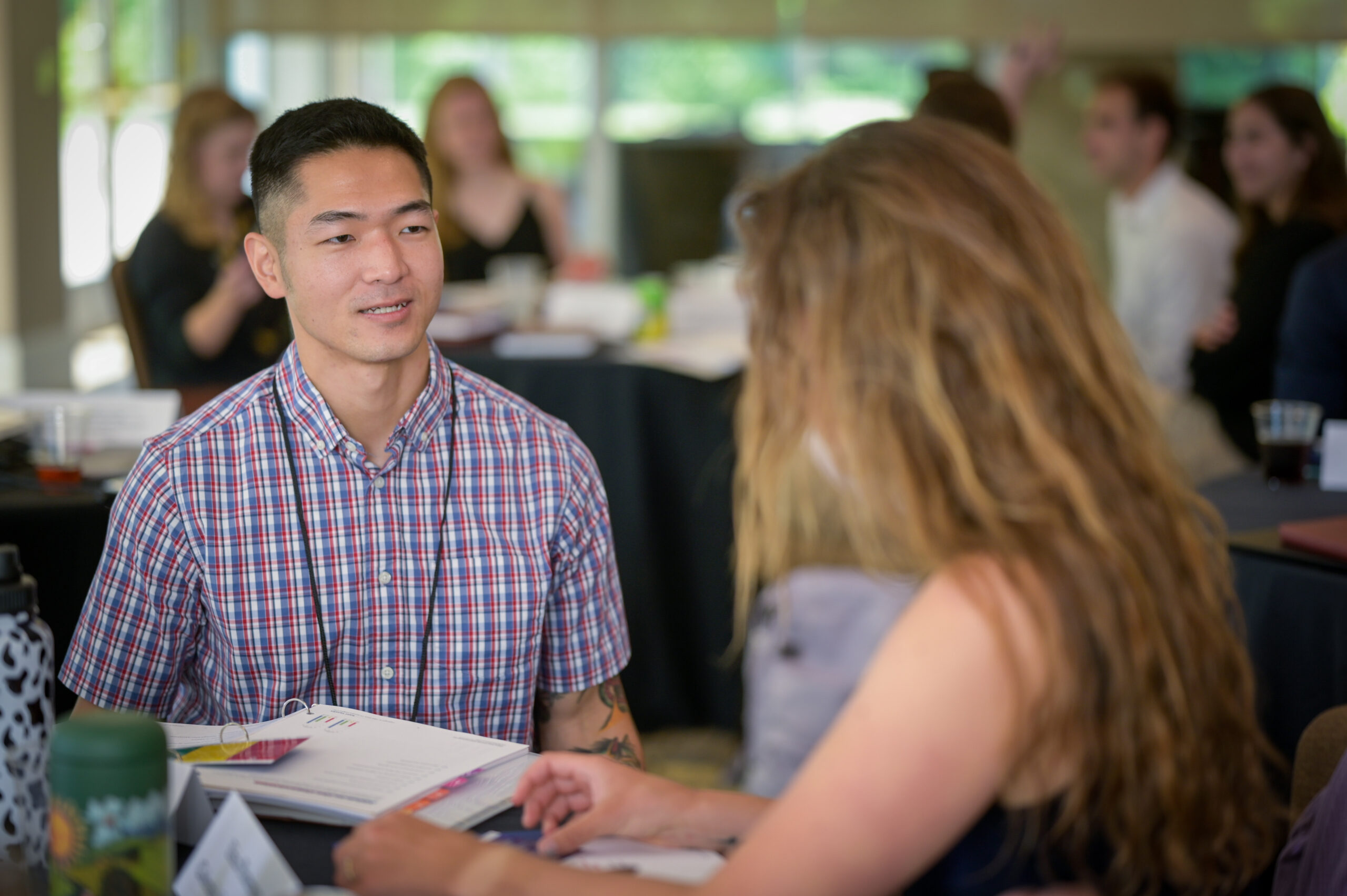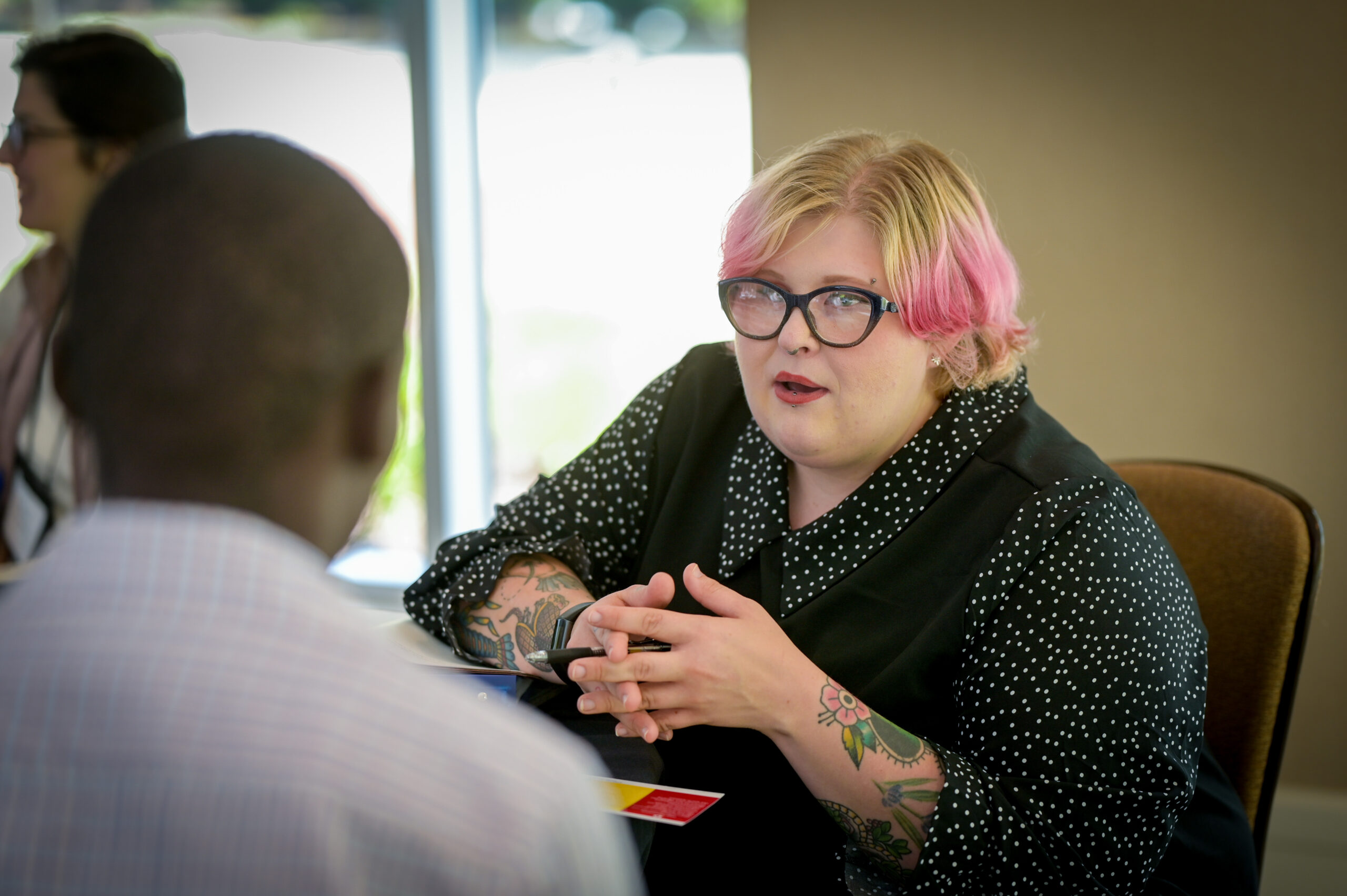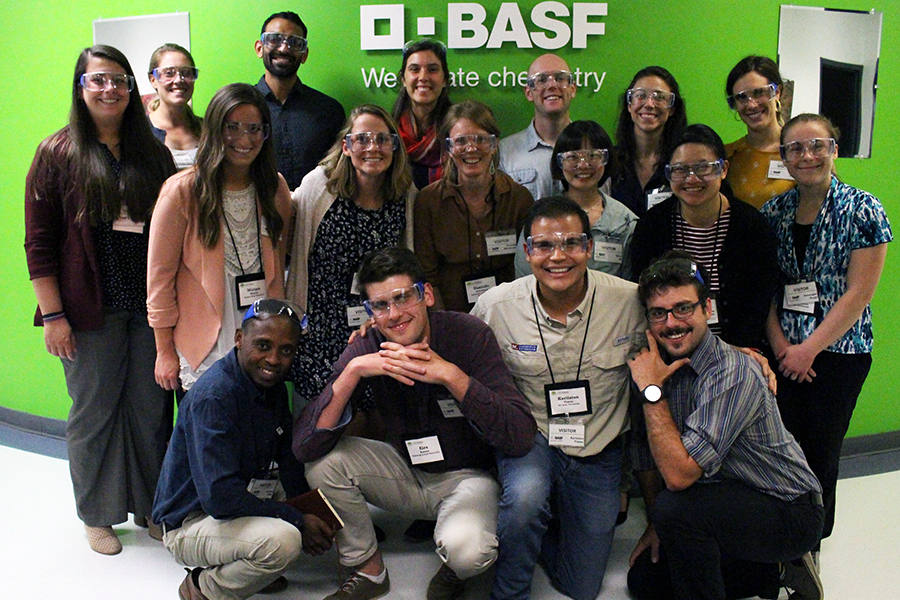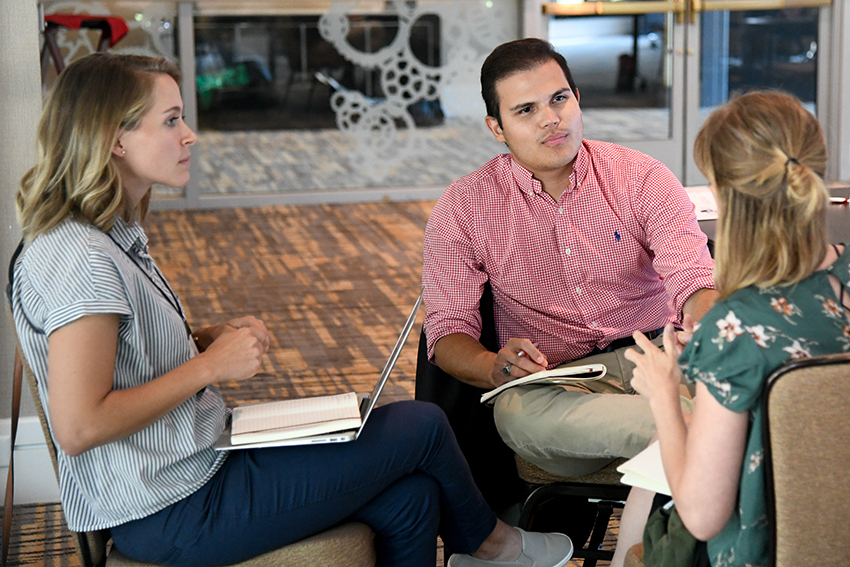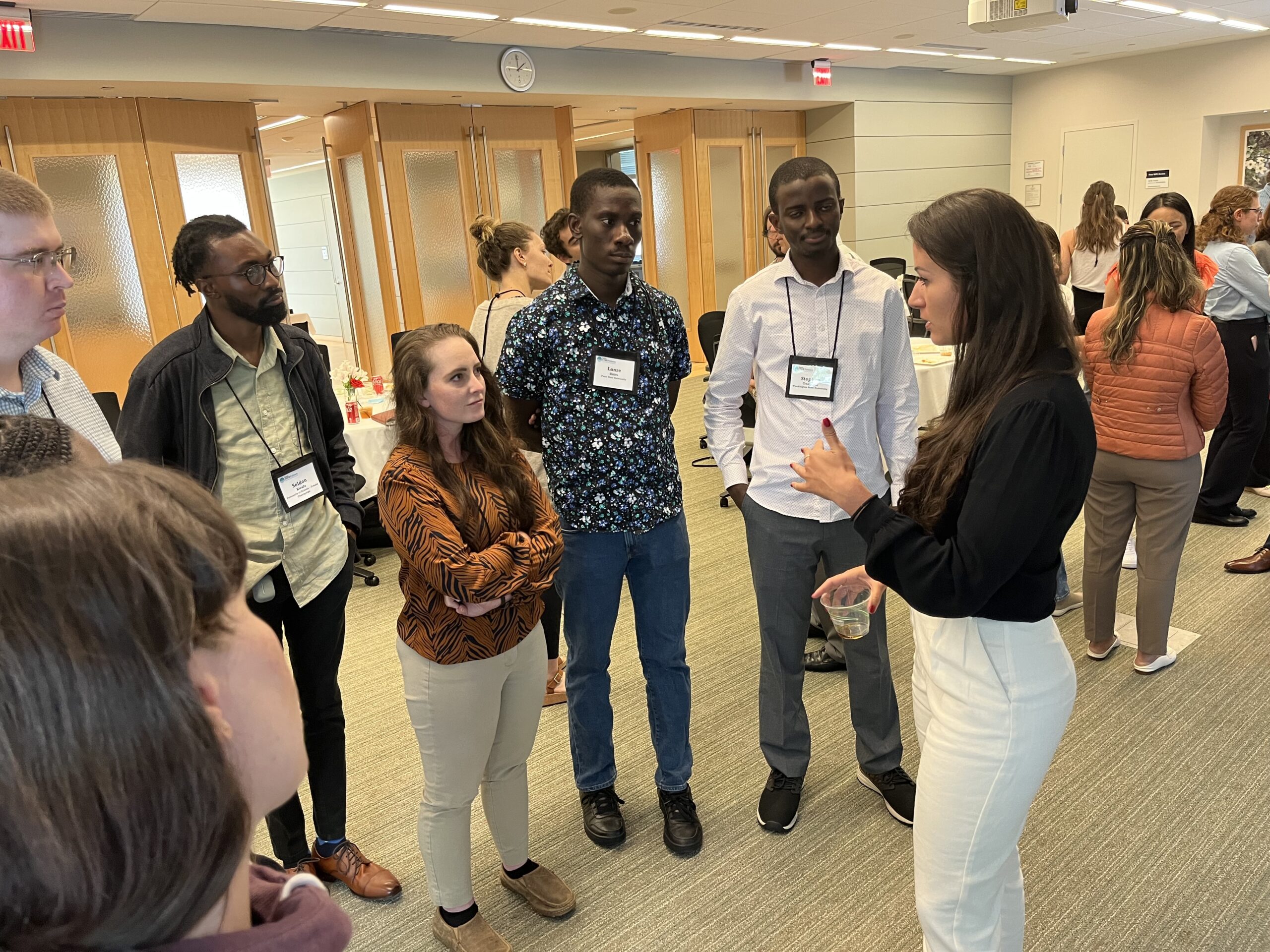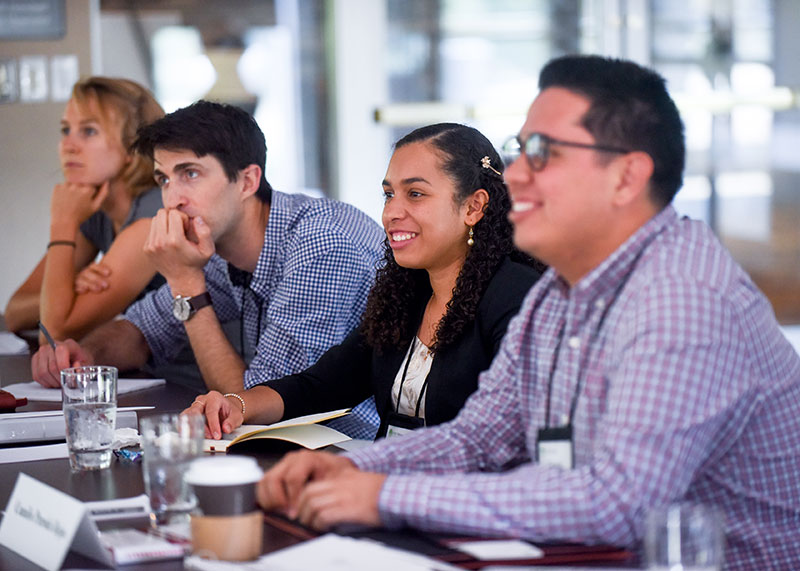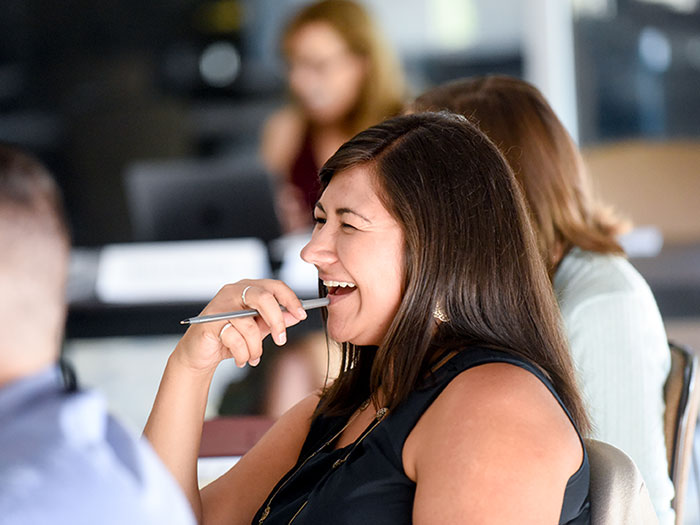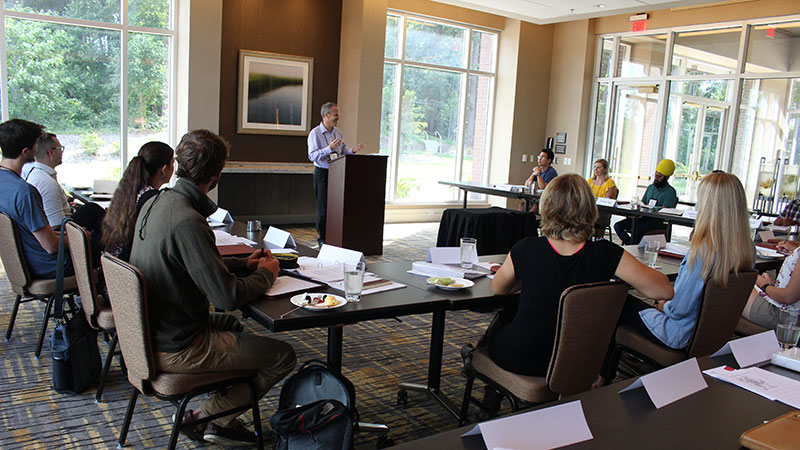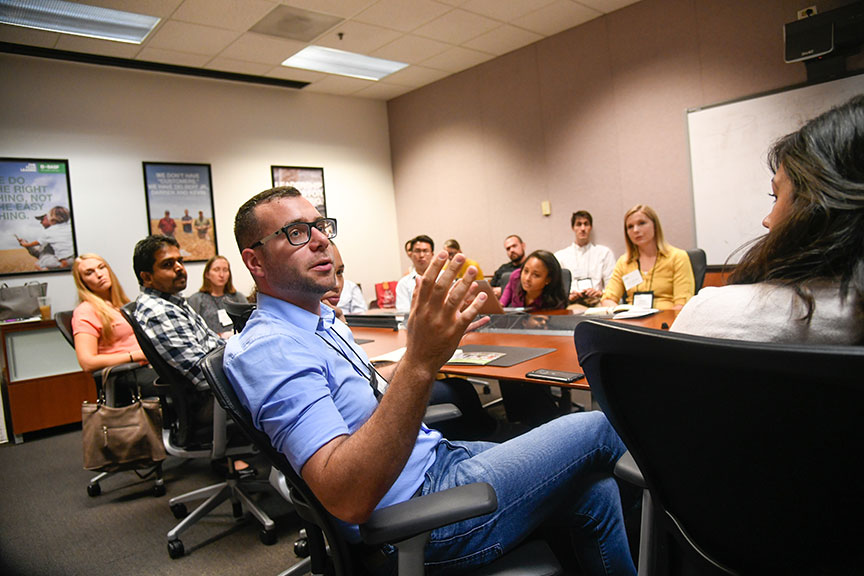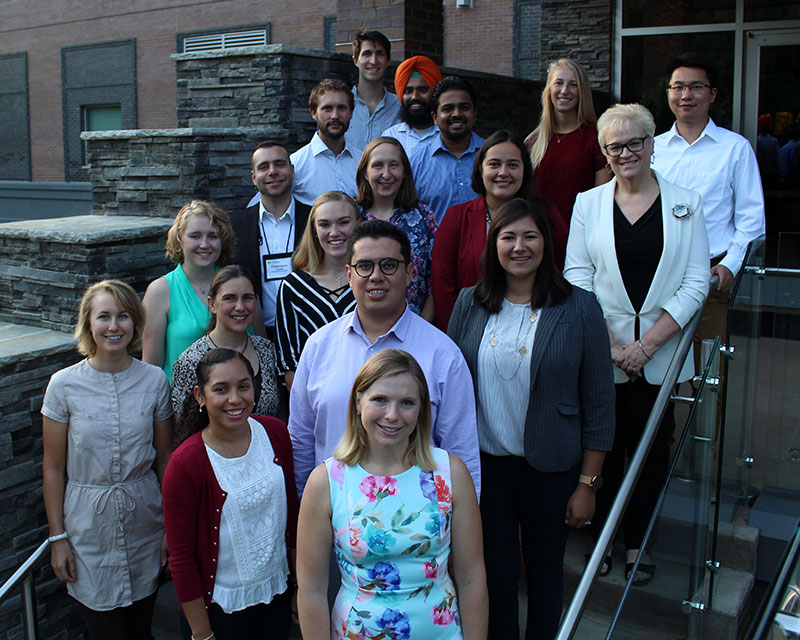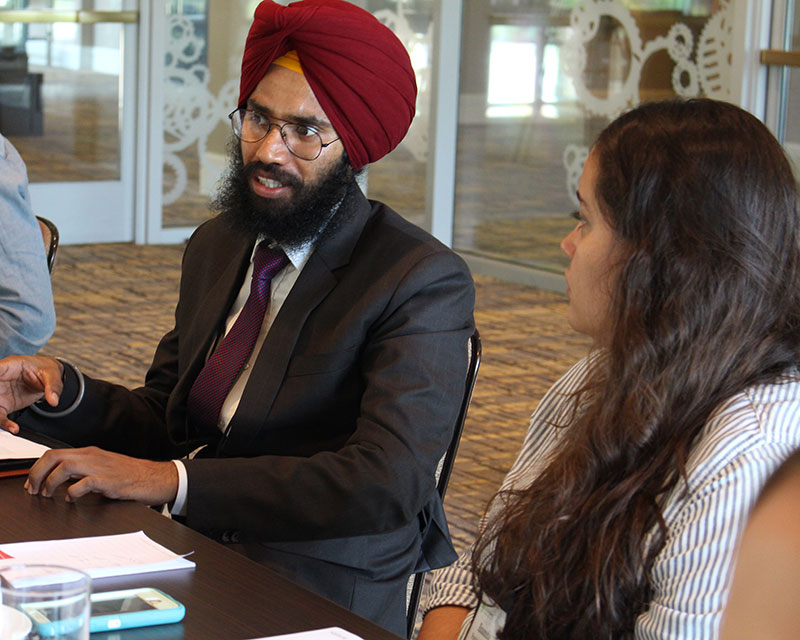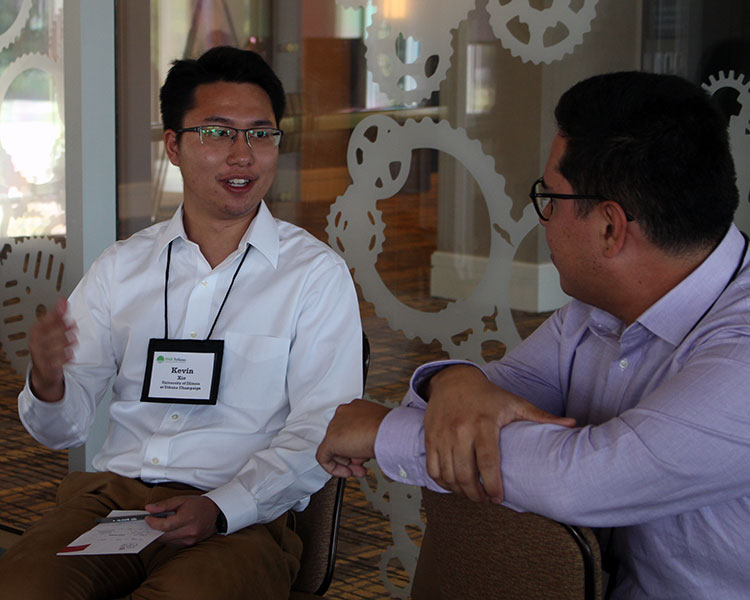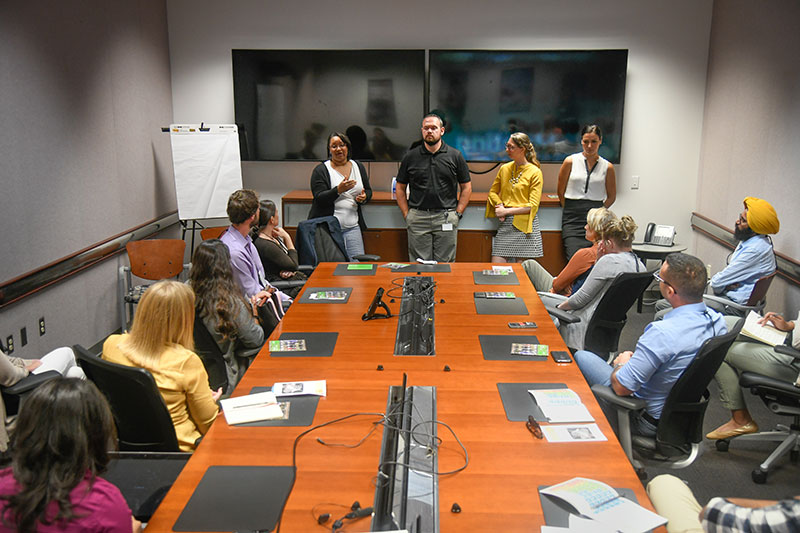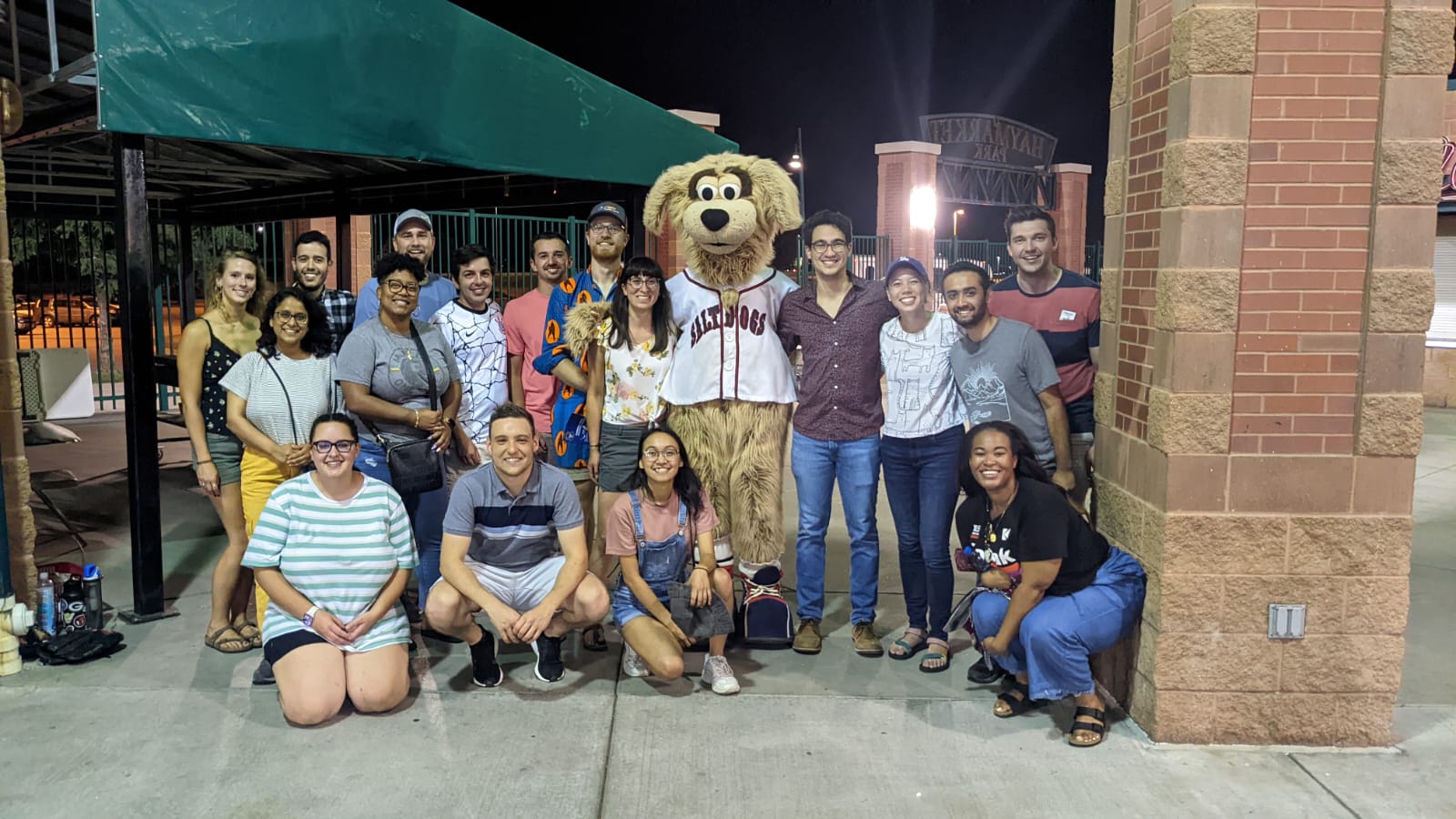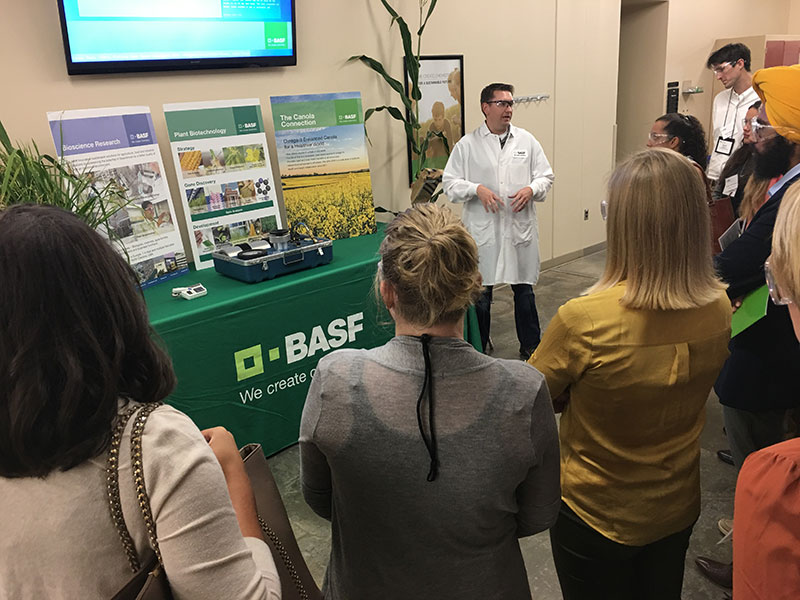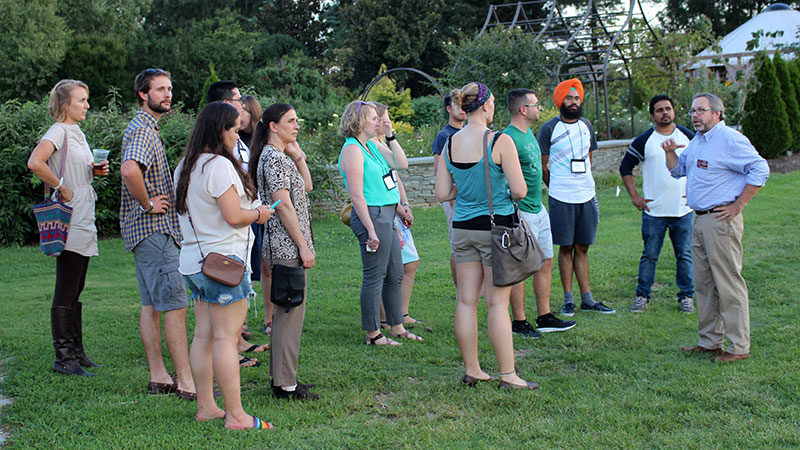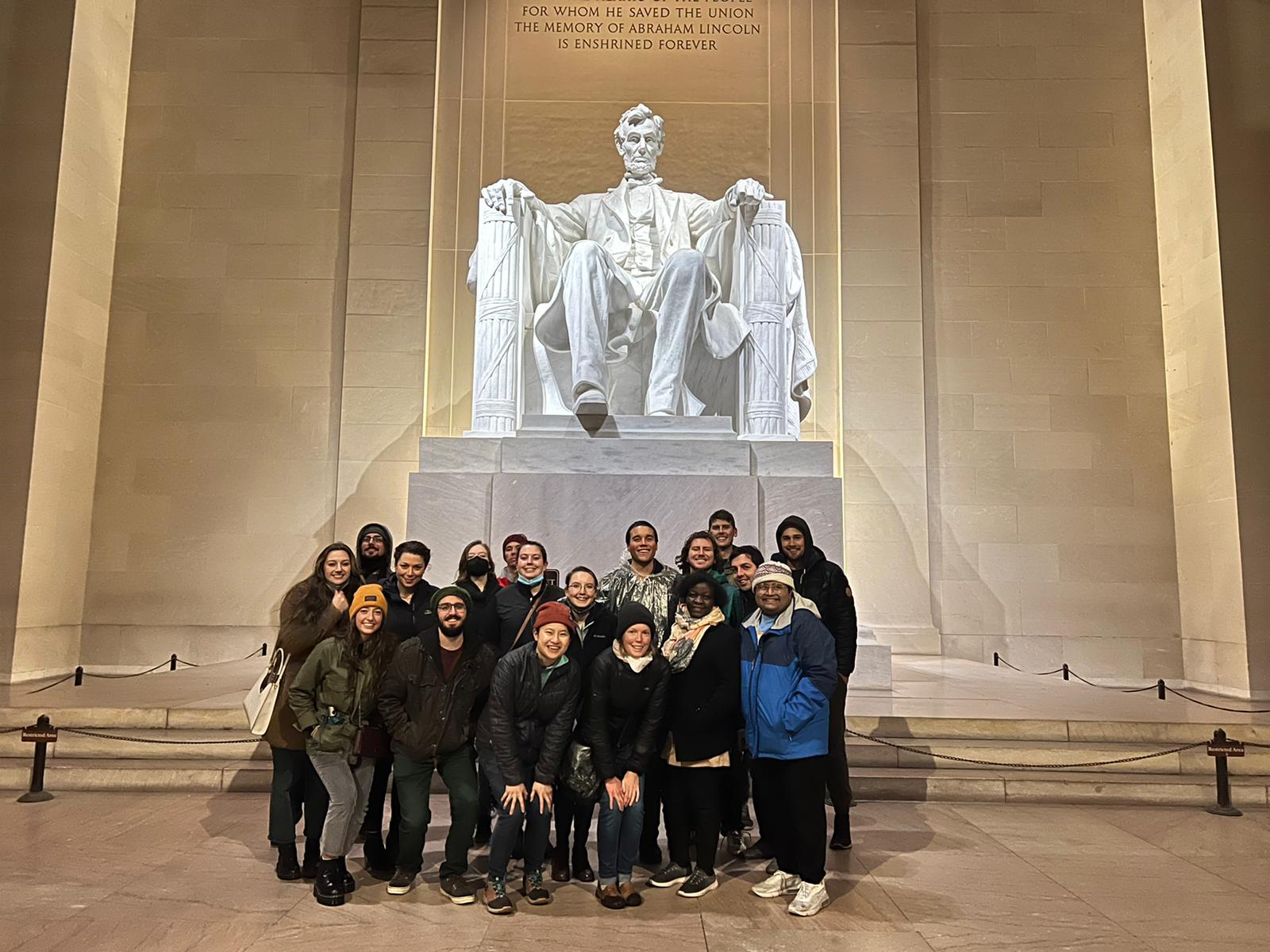Program Overview
The FFAR Fellows Program offers leadership and professional development training to PhD students studying food and agriculture-related sciences in the U.S. and Canada. North Carolina State University leads the initiative, which provides Fellows with training, networking opportunities, and peer support.
Over the 3-year period members of each cohort of 30 fellows attend four in-person meetings plus monthly virtual sessions, create and execute annual professional development plans, and network and establish mentor-mentee relationships with industry scientists and others outside of academia.
The Fellows Program kicks-off with a one-week orientation session in August at North Carolina State University (NCSU) and a second session at NCSU the following April. These Year 1 sessions and monthly webinars focus on self-assessment, emotional self-management, creating networks of support (peer, mentor, professional), presenting scientific information in a clear and compelling manner, improving interpersonal communication and teamwork skills, time management and prioritization, and exploring a variety of career paths. The residential sessions include site visits at agriculture industry locations in Research Triangle Park and meetings with industry scientists and extension leaders including alumni FFAR Fellows.
In Year 2 of the program Fellows have a spring meeting in Washington, DC. This meeting and webinars in Year 2 focus on communicating with policy-makers, understanding the policy process, and exploring careers in the public sector and NGOs. In Year 2 fellows also train to become better mentors and supervisors and effectively lead through influence. They also complete a 360 assessment process whereby they receive largely anonymous feedback from their advisor, mentors, peers, and those they supervise.
Fellows final, Year 3, session is held in St. Louis and includes tours and networking at Bayer Crop Science, the Donald Danforth Plant Science Center, the Purina Animal Nutrition Center, and a host of early stage and start-up agtech companies which form the St. Louis agtech ecosystem. In Year 3 fellows receive training to create and manage effective meetings, develop intercultural competence, and execute a successful job search campaign; and learn core business topics and an understanding of business needs and the product life cycle. If they have not done so already, Fellows participate in training to create a 3-minute Lightning Talk and submit a research-focused blog post.
Each year fellows complete a Professional Development Plan (PDP) and have interactions with their mentors (their advisor, and industry mentor, and an additional mentor depending on interests) to identify and achieve their PDP goals.
Objectives of the FFAR Fellows Program
I had always thought that government wasn’t for me, and policy work definitely isn’t. But the talk from USDA-ARS staff (at the Washington, DC, meeting) was intriguing. I didn’t realize there were R&D type roles in government in my exact field of research.
The residential session was amazing, I loved it – all the introspective sessions to figure out how you want to have a career and how to work, I had never spent time on figuring those things out. I also love how all the fellows work in different areas but all related to food. I’d never been to an event like that – there’s no competition (whose paper is better, etc.), because we all research different things.
The first residential session was amazing – I think just being thrown into a room with a lot of really smart people who also care about the Earth and the future of humanity and feeding everyone, and all these things that I really care about. It’s exciting to meet a lot of people who have those same goals and aspirations, especially when I was feeling a little dejected in my goals. It re-inspired me to be a part of the change I want to see in the world.
My biggest takeaway from the week was getting to connect with my fellow fellows. They are such a bright and inspired bunch of students, and it is really nice to be surrounded by a group with similar hopes and ambitions as I have – and to find the synergies between the types of work that we are doing.
I really enjoyed the NC State session and meeting the fellows. When you are a grad student, it’s hard to be intentional when you are trying to multitask. Having that long stretch of time and to be able to remove yourself from your grad studies and really focus on professional development. I really liked the emotional intelligence and personality tests – I thought that was a good way to begin the program and learn how to work with others.
I loved our site visits to local companies. The experiences shared were very genuine and real. It helped me understand that as graduate students we should consider working in both large and small companies; that we could learn, thrive and make an impact.

